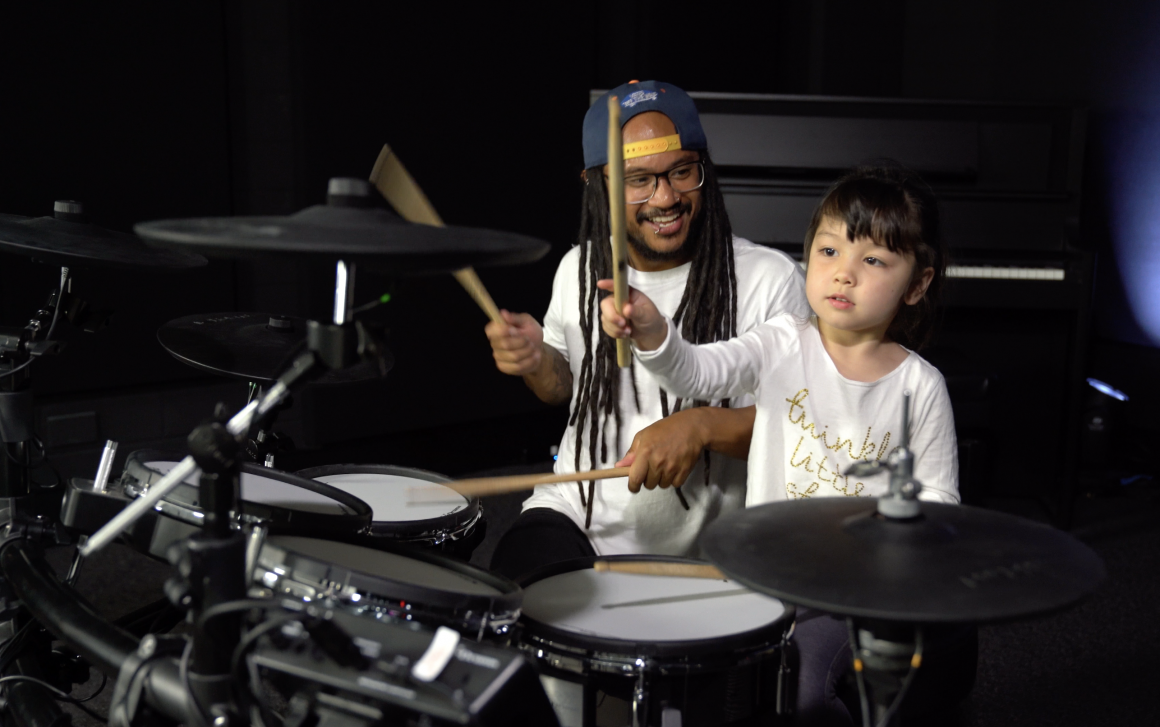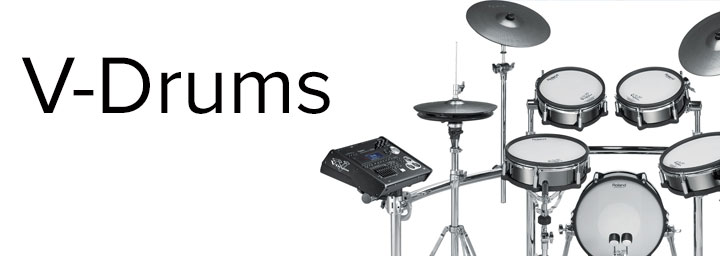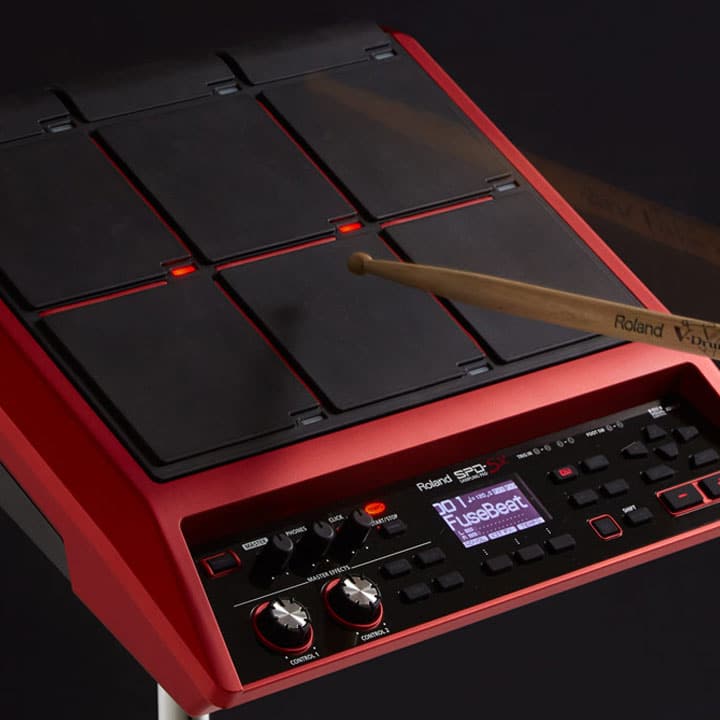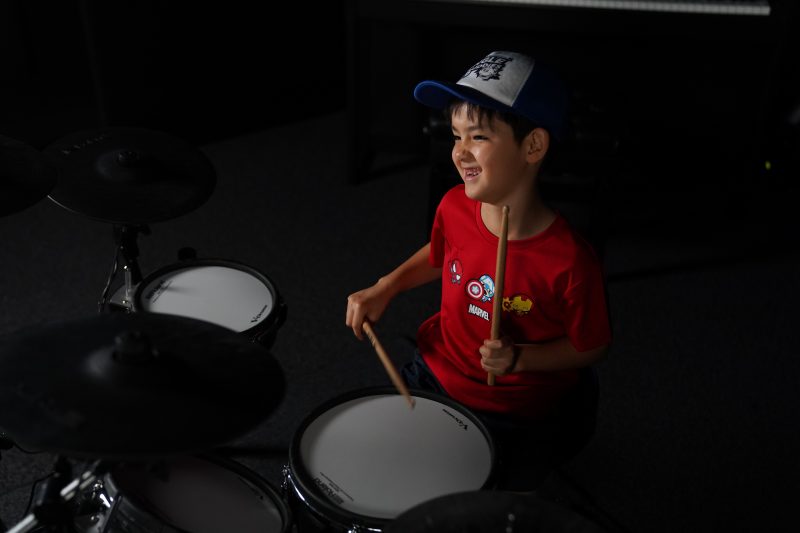
Hi! My Name is Akanksha Salvi and I am a drum player & teacher by profession. And I am also a mother of my six years daughter. Today I am really excited to share the experience of my Daughter’s first Drum Lesson.
Contributed by Akanksha Salvi for Roland India
For the First Drum Lesson – If you ask me, like any other art form, playing the drums too is an art form. Each student has his/her preferred way to learn drums. While I have seen that some students prefer learning by ear, others prefer knowledge by reading notes.
Each teacher has his/her unique way and style of teaching. I believe that the best way to learn fast and progress is finding a teacher that you can identify with. A good teacher will be able to quickly identify how you discover the best- be it by reading notes or listening and playing back. Then he/she would plan the lessons according to what suits your style of learning.
My daughter was keep practicing with her stick hitting on the pads before going to sit for Drums. I was pretty excited and since I was her teacher too, that was among one of my most memorable movement. I gave her the stick and ask her to do which she used to do even before – Hitting on the pads!!
There are a few basics that will always be part of any first lesson, as you learn to play the drums.
Grip
A good teacher will take the first few minutes of the Drum Lesson to make sure you have a proper grip. It will help if you do not grip the sticks too tight, nor too loose. The way you hold your sticks goes a long way when it comes to speed and endurance.
There are three main grips used in drumming:
- Matched German grip (both palms facing down, sticks make a right angle, arms at sides)
- Matched French grip (both hands with stick pinched between first finger and thumb, thumbs facing up, sticks making a right angle)
- Traditional grip (right hand using French or German grip, and left hand holding stick like a fork or spoon)
The grip you use depends on a mix between your personal preference and practicality. Some drummers prefer one grip over another, as will specific playing techniques and styles.
Playing Techniques
There are many different playing techniques when it comes to drums. It is good to try out as many as you can, and see which ones suit your style. Depending on your teacher, you will mostly focus on just a few to start, to set a good foundation. Techniques can take a long time to master, but the improvement can be seen quickly with daily practice.
Parts of the Drum Set
Next, your teacher will most likely go around the drum set and introduce you to all the different drums and cymbals, including their names, sounds, and uses. You will learn how to use the pedals, along with foot techniques properly.
Rudiments
Alright then! Since we have come this far into your first lesson, Now is when things get even more exciting!
Your drum teacher will start with the basic five keys:
- Single Stroke Roll Right hand lead = RLRL
- Single Stroke Roll Left hand lead = LRLR
- Double Stroke Roll Right hand lead = RRLL
- Double Stroke Roll Left hand lead = LLRR
- Paradiddle = RLRR LRLL
These are the most well-known, fundamental rudiments. These will be the basis of anything you play, from beginner level to advanced. A good teacher will encourage you to practice these every day. It is important to start these very slowly but maintaining consistency in dynamics and gradually increasing the speed.
I generally try to give an exercise based on what they are most likely to be interested. For example, if my student loves Bollywood music, then I will encourage him/her to practice the exercise along with it. This way, my student enjoys practising exercises much more! I may also sometimes go into slightly more advanced concepts like accents, which are volume levels known as dynamics, or I may go right into teaching a basic beat. It all depends on the student and what they find exciting and fun!
The most important thing to remember is that it is not about the destination, it is about the journey, and enjoying every step of it. Drums are such a fantastic instrument, and they have such a vast depth of possibilities that you can spend your entire life studying them, and still not know everything. That is what I love the most.
Conclusion
It was me! Sharing my best experience and hoping this information will be helpful. You will be no longer nervous about going to your first drum lesson. You can do it! Give yourself a chance and remember that just like with every art form, it’s all about practice, patience, and progress. Enjoy the journey!
Go for your First Drum Lesson and don’t forget to share your experience with us.
Related Post : Encourage your children to learn Drum Instruments
Recommended article: Benifit of playing the drums on your child’s health
Related Post : Benefits of learning on Digital Drums
Related Post : Learning the Drums at Home






